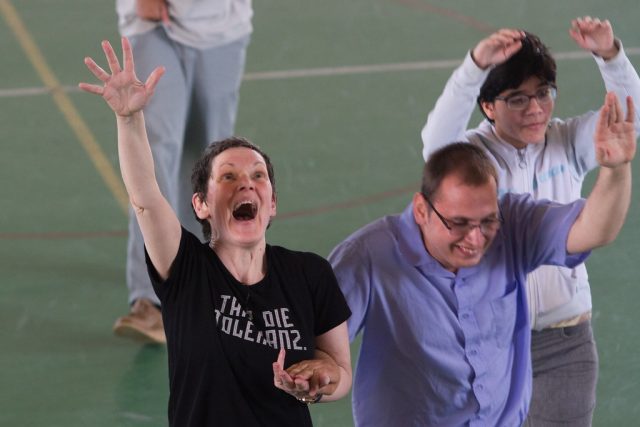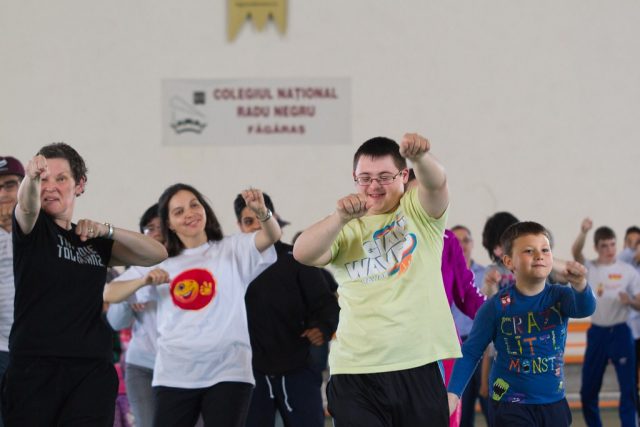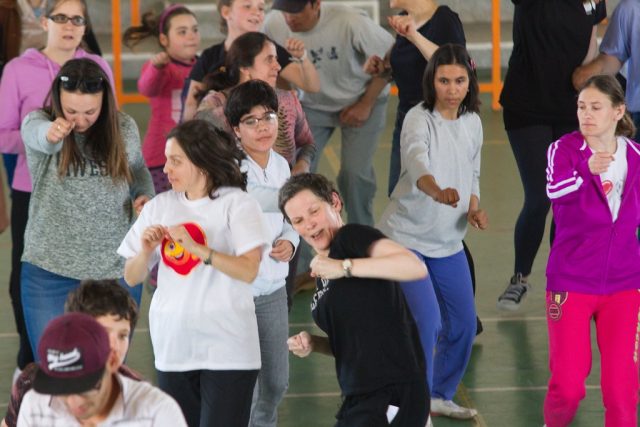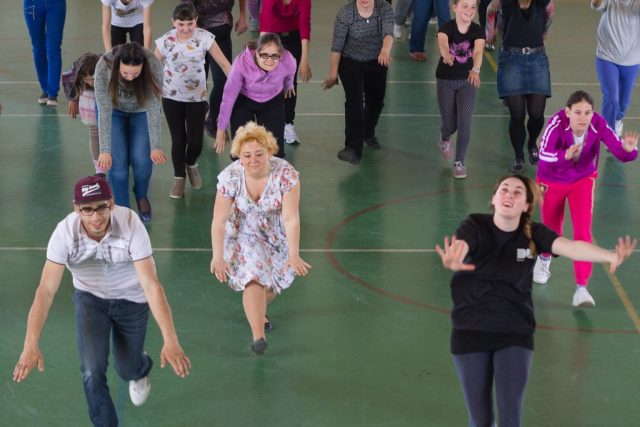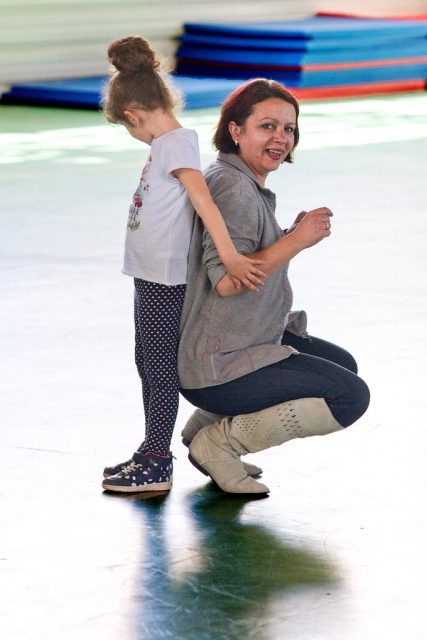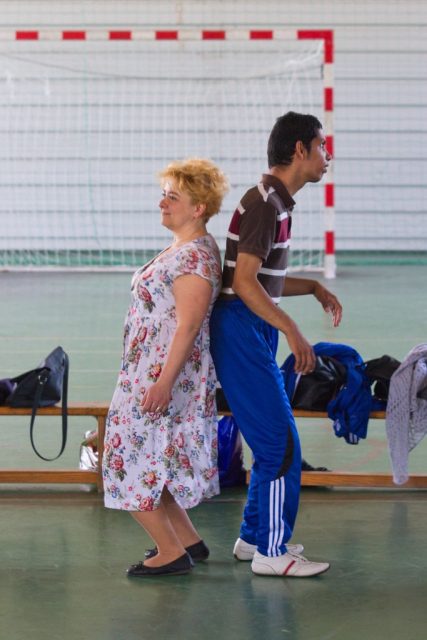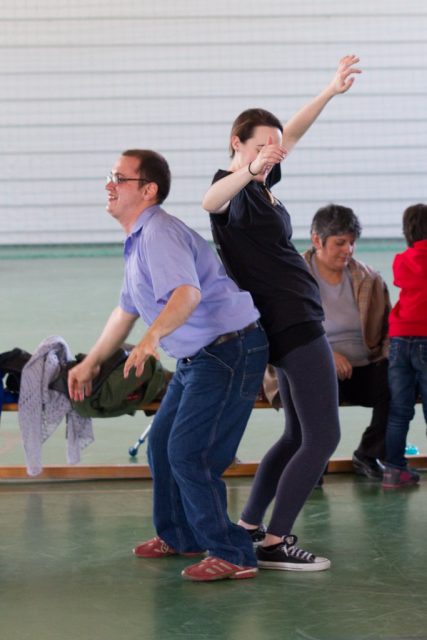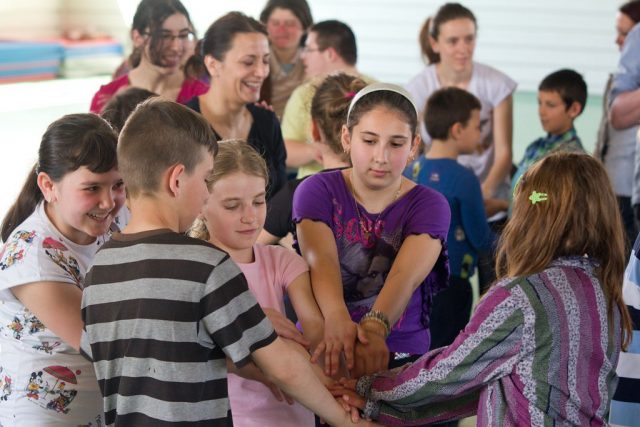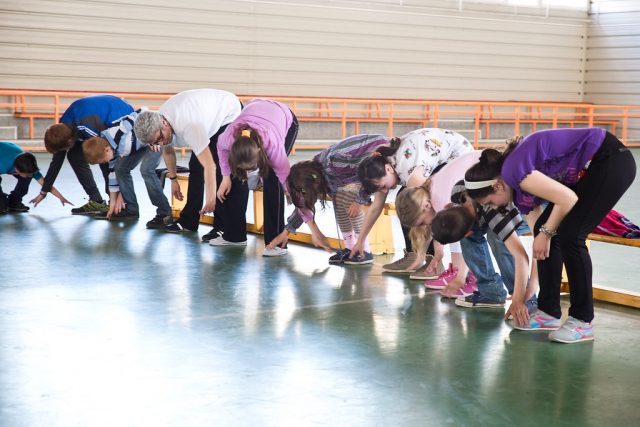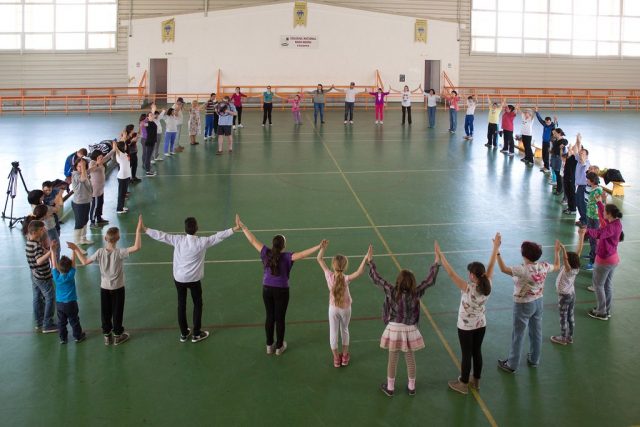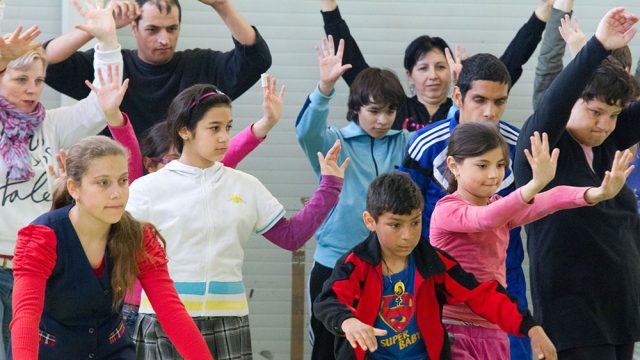
A disability-led community dance performance hosted and led by Agape Orphanage and involving people of all ages and abilities from the towns of in Sercaia and Fagaras and from surrounding local villages. Part of EveryBody Dance a long-term, on-going Community Dance project
- Performed : Casa de Cultura in Fagaras
- Directed by : Janice Parker
- Assisted by : Anke Böttcher and Kirsteen Mair
- Lighting and Images by : Pete Ayers
- Filmed by Scottish Documentary film-maker Martin Clark
Janice was invited to Romania in 2007 when she was working in Detmold Germany, mentoring and developing community dance projects there over a number of years. Her first Romanian visit involved meeting, dancing with and getting to know each of the children living in Agape Orphanage, under the forward thinking direction of Rüdiger Frodermann, in Sercai, and meeting and dancing with the staff. Right from the word go, the enthusiasm and the welcome were palpable and totally energising. Janice quickly realised that the disabled community, though living good lives in the orphanage, were very segregated from the rest of the population. So the priority of the work became to actively do something about that. The politics were, and still are, to build and create community through dance, for the disabled community – as individuals and the orphanage as an organisation – to lead and host the workshop and performance programme and, through all of this activity, to begin to change attitudes about and perceptions of disabled people. It is a move towards inclusion, equality, and a deep form of social justice.
Everybody Dance continues to be active and alive with an on-going yearly community dance programme directed and mentored by Janice and involving a number of community focused dance artists from different parts of Europe. We grow and develop as the work and reach of the Agape Orphange extends in reach and capacity. We work with disabled children and young adults from surrounding villages as well as social and educational organizations in the town of Fagaras. Some of the disabled children from the very first project continue to dance with us as independent young adults and are now experienced at leading warm-ups and taking more leadership in the work. There are generations of children from the local primary school who now think of disabled people as friends and a whole plethora of adults who dance on equal terms without judgement or sense of superiority around or the need to support disabled dancers. We have danced with literally hundred’s of people through our workshop and performance programme, and always, always, it is the disabled people who form the core and heart of the work and on their terms. There is a long way to go, always, but massive in-roads have been made. The politics of the work continue to be at the fore front and it is vital that it is disabled people who are the hosts and generators of this work and our time there.
“Romania is a dancing culture so they throw there whole selves into it. There has always been a series of firsts for me in Sercaia and Fagaras – the whole building, all the admin and technical staff, joining the workshop, the teachers in the primary school leaping across the room along with their pupils, in that moment from lying upside down on the floor to coming to standing again another 20 people joining the workshop circle, folks who drop by and join in for 10minutes in the most abstract of movement sequences, parents who come with all there kids, a TV station just drops by, working in a gym in November with snow coming through the roof, no heating and brilliantly dancing with our coats on, and someone who walked 6 miles to and from the workshop space every day and who didn’t know anyone else and no-one really got to the bottom of how he knew it was happening, and I love it, It is so alive and fiery. The movement is full of emotion and quality. There is no judgement, and there is lots of desire. I find this really energising and liberating. I love embracing and working with what we in the UK would call chaos, or not adequate provision, as a positive creative force – good things come from it. In Romania, in my experience, it is good to expect the unexpected! There is much for us to learn. I am particularly proud of the connections we have made with the local primary schools through workshops and performances and of the films we made together with Scottish film-maker Martin Clark. I’m proud too of the leadership qualities that the disabled dancers have developed and finally, that we are still going, thanks to funding and vision from the Peter Gläsel Stiftung, in Germany. Social and economic conditions for a lot of people in Romania are not easy. This is a country still in transition. It has been, and continues to be a privilege, to contribute in a small way to making change in people’s lives. There are so many stories to tell about the work and my time there. I hope I get the chance to do that one day”
EveryBody Dance also offers a mentoring programme for local, national and international dance artists.
Gallery
